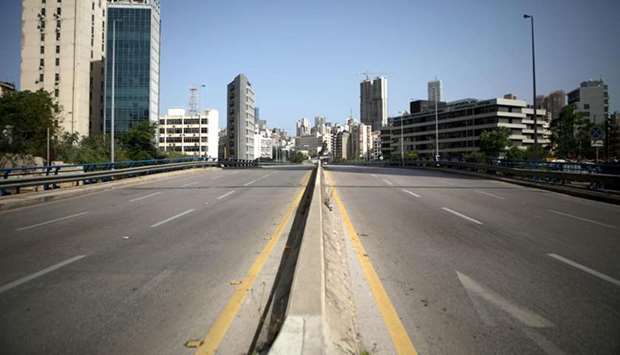Lebanon will gradually lift a coronavirus lockdown that has compounded its economic crisis, Prime Minister Hassan Diab said yesterday, despite an uptick in cases that prompted a four-day lockdown.
Speaking on television, Diab said that the country would “reopen based on the five-stage plan” as of today, referring to a government roadmap aiming to completely lift restrictions by early June.
“We realise that continuing the lockdown has serious economic and social repercussions,” he added. “We are trying, as much as we can, to minimise these repercussions.” Lebanon has recorded 911 cases of Covid-19, including 26 deaths.
The prime minister spoke on the last day of a four-day lockdown that went into force Wednesday night, following an uptick in infections.
He said the number of cases had spike late last week, increasing almost five-fold over a period of 10 days.
Prior to the four-day lockdown, restaurants and cafes had reopened at 30% capacity, prayers had resumed at mosques and many people were back at work.
Diab also said that authorities will impose quarantines on “neighbourhoods and regions with high infections rates” to stem the spread of the virus.
Lebanon is in the thick of its worst economic crisis since the 1975-1990 civil war, compounded by the coronavirus pandemic.
Forty-five per cent of Lebanon’s population now lives below the poverty line, and tens of thousands of people have lost their jobs or seen salaries slashed because of the downturn.
The Lebanese pound — pegged to the dollar at 1,500 since 1997 — has seen its value plunge by more than half on the black market.

A picture taken yesterday, shows a deserted road on the southeastern outskirts of the Lebanese capital Beirut, during a lockdown imposed by the authorities due to Covid-19.
